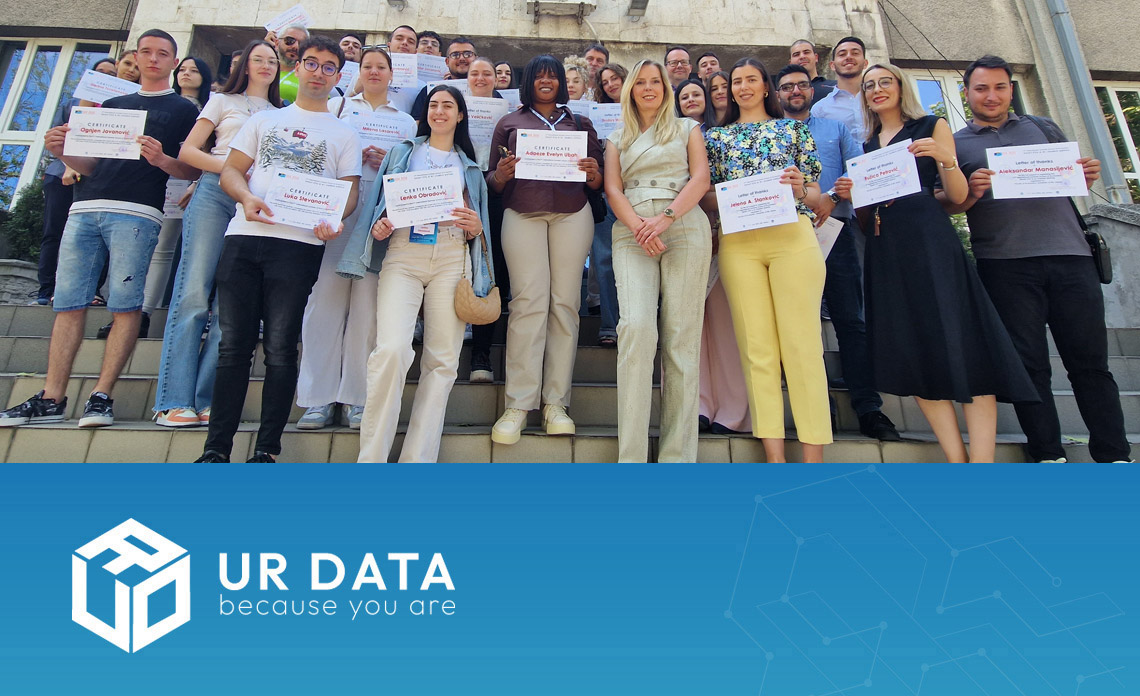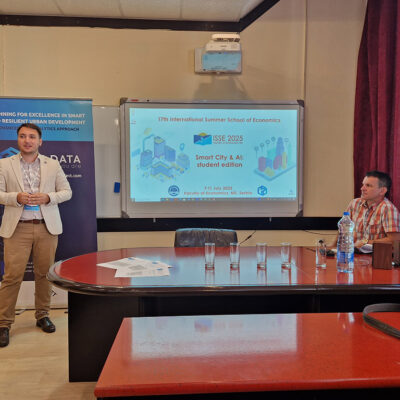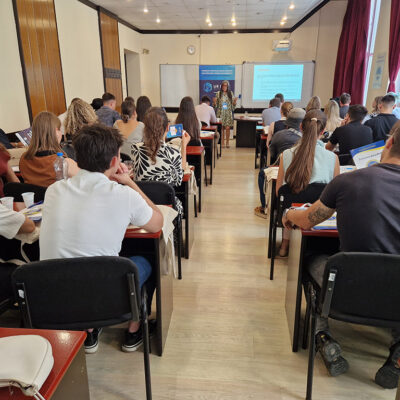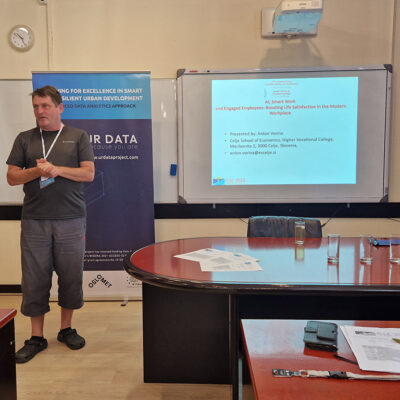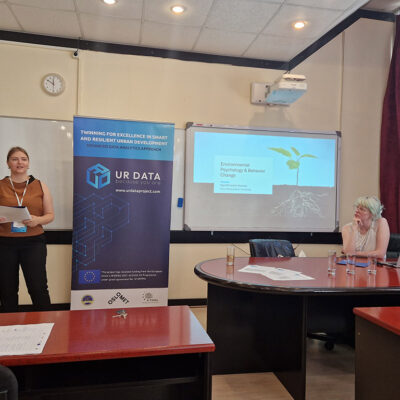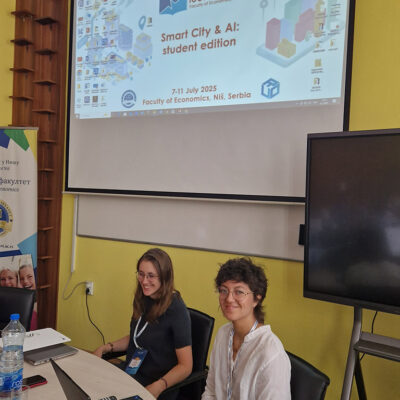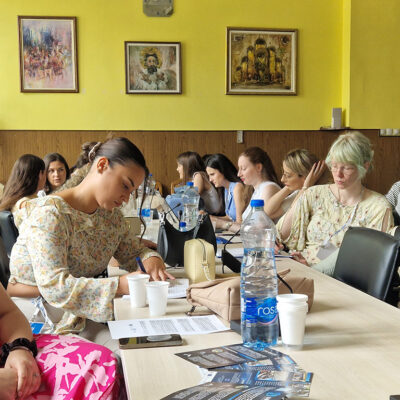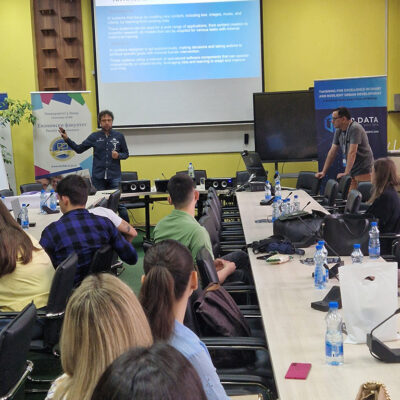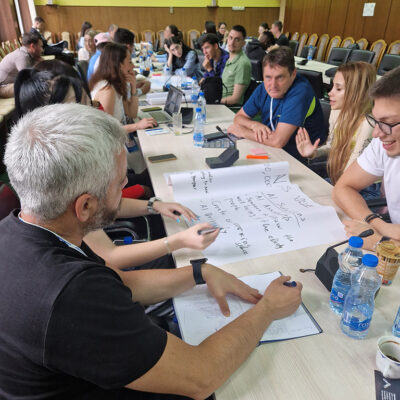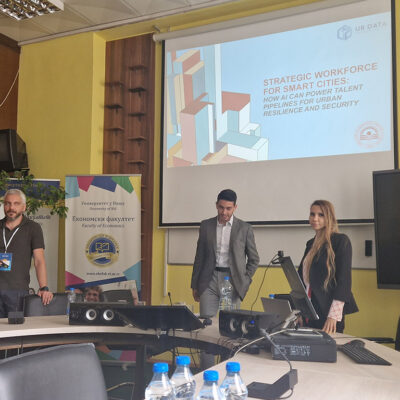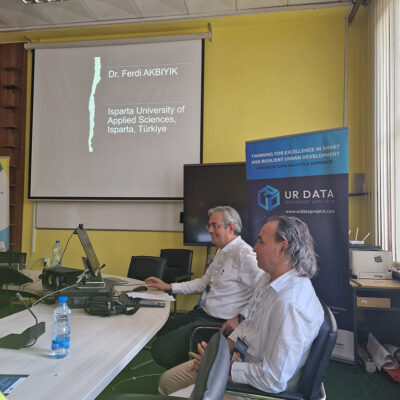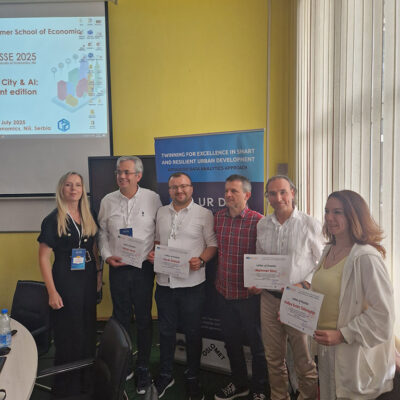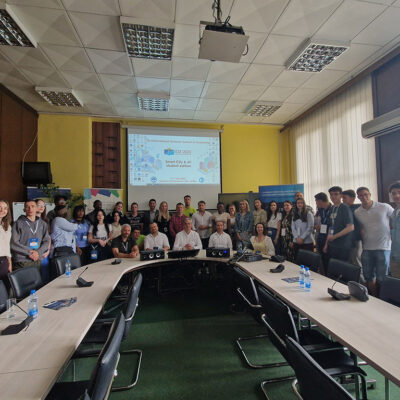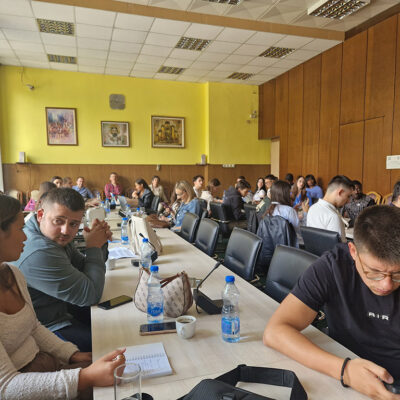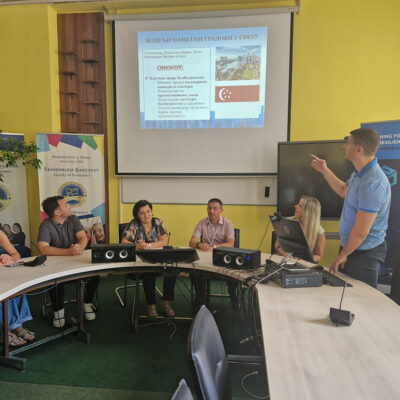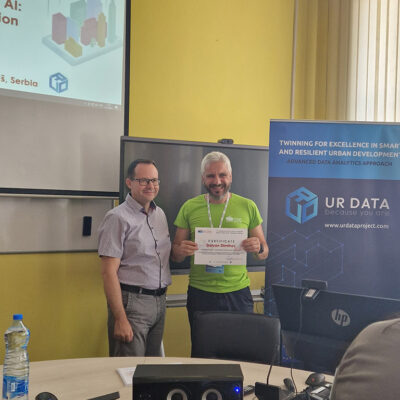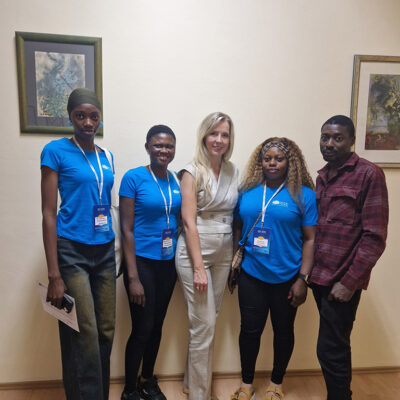The 17th International Summer School of Economics (ISSE 2025) gathered students, researchers, and guest lecturers from across Europe and beyond for a dynamic week dedicated to the theme “Smart City & AI: Student Edition.” Organized by the Faculty of Economics, University of Niš, this year’s school was the last one held in partnership with the UR-DATA project, offering participants insights into the intersections of smart technologies, sustainability, and urban futures. Over the course of five days, more than 50 participants engaged in lectures, workshops, case studies, and cultural activities, with over a dozen guest speakers from Serbia, Italy, Norway, Slovenia, Turkey, Bulgaria, and the United States.
The school officially opened on July 7 with welcome speeches by representatives of the Faculty of Economics and the University of Niš, including Vice-Dean Dejan Đorđević, and Vice-Rector Tadija Đukić. The day featured an engaging keynote by Dr. Azucena Herrera (University of Texas, Rio Grande Valley, USA) titled “Leading in Smart Cities”, followed by lectures from Dr. Anton Vorina (Economic School Celje, Slovenia) and Sigrid Glomdal (OsloMet, Norway) on AI in the workplace and environmental psychology.
The second day focused on systems thinking for sustainability. Experts Claudia Romelli and Cristina Ragazzi from Poliedra – Politecnico di Milano led a two-part interactive workshop on DPSIR and Ecosystem Services Practice, giving students tools to evaluate complex urban systems. In the afternoon, students explored Niš with a guided walking tour that blended local history with reflections on urban transformation.
Midweek sessions turned the spotlight to AI-powered cities. Through hands-on workshops, Nikola Pejović and Nenad Dimitrijević facilitated student projects imagining future urban environments driven by artificial intelligence. Later, Hatice Evrim Tütünsatar (Isparta University, Turkey) introduced students to Archaeological Geophysics, connecting ancient data with today’s city-building technologies.
The 4th day featured a rich lineup of international guests. A case study by the University of National and World Economy (Sofia, Bulgaria) explored how AI can support talent pipelines and urban resilience. Speakers from Isparta University of Applied Sciences (Turkey) introduced participants to cutting-edge topics including neuromarketing, environmental accounting, and green intellectual capital. In the afternoon, participants shared country and organization presentations, celebrating the diversity and collaboration that define ISSE.
The final day began with a thought-provoking lecture by Dr. Darko Dimovski (Faculty of Law, University of Niš) on the role of smart cities in crime prevention. The event concluded with a diploma ceremony, where students received certificates and shared reflections on what they learned and how they will apply it.
The ISSE 2025 demonstrated once again the value of bringing students and educators together to explore the big questions shaping our urban futures. The UR-DATA project was proud to support this edition, offering meaningful content and international connections aligned with the project’s mission of building smart, resilient cities through data and collaboration.

